|
The Alaska sockeye fishing season was another one for the record books here on the wild Alagnak River. Although it started extremely late, I would say around the 5th of July was the first day we could really go after them with limits a non-issue. This run usually starts on the 29th of June – July 1 like clockwork, but not this year. Many were getting very nervous about the fish having some high seas catastrophe over the winter but I can assure you this was not the case. The sockeye salmon started late and ran later than we have ever targeted them. We were still catching limits of sockeye in the mornings and catching silvers in the afternoon in late July. I have to admit, this is something I have never seen in over 25 years on the river.
The upper rivers where they spawn will have plenty of biomass to feed a thriving wild trout population. These wild Alaskan trout are so coveted to the many sport fish anglers that fish this watershed on an annual basis. The huge biomass will also feed the entire ecosystem from the trees and brush that line the banks of the river to the bears and many bird species that call this river drainage home. The sockeye are no doubt the largest supporters of this watershed in terms of fertilization, and this year is a banner crop yet again. Anglers Alibi has been known as a premier salmon fishing lodge on the Alagnak River in Alaska for the last 25 years. This river branches out from Bristol Bay, winding and weaving for 60 miles up river to its origin, Nonvianuk and Kukaklek Lake. The lodge sits on top a bluff with a riverfront view at mile marker six. Locals will tell you that good fishing begins at mile marker three and prime fishing begins shortly after...giving guests at Anglers Alibi front row seats to pristine fish-able tidewater.
One thing you will notice on your way to Angler’s Alibi is that we are the true definition of a “remote Alaskan fishing camp”. You see, the closest town is King Salmon, AK and we are about a 30-minute floatplane ride from the there – and that town is reached through a commercial flight from Anchorage that takes just over an hour. The bottom line is that by the time your journey ends at our dock, and the fishing week begins, you are pretty much left with what you brought with you. That can make packing for this week of fishing in Alaska a daunting task – but is actually pretty simple if you follow some of these guidelines.
Anglers Alibi is an all-inclusive Alaskan fishing camp, so you won’t need much outside of the clothing you bring with you and that’s what this post focuses on. It’s important to realize that, during the fishing season, average Alaska temperatures are in the upper 60’s during the day and lower 40’s at night. HOWEVER, it can get as low as 30 degrees at night and into the 90’s during the day! The coldest days fishing will be in the 50’s and the hottest in the 90’s, so you want to be prepared for these potential huge temperature changes. So, we’ll cover what clothing to bring for your time fishing… Sockeye salmon are noted as being the best tasting salmon in all of Alaska. They are the number one targeted species for commercial fisherman with their rate of $1.00 or more per pound every year. But, this is not an article on how to catch sockeye salmon with a net. Fly fishing for sockeye salmon is also very popular and this article gives tips and advice for those anglers looking to target sockeye.
Sockeye salmon spawn in a lake or most spawn above a lake as part of their life cycle. Once the sockeye salmon hit their native spawning river, they usually only stop a few times to rest unlike the other salmon species. These salmon pretty much charge up the river in a migrating stupor that is an amazing sight to see. Just think what it must look like when over a million salmon swim by our shoreline hugging the bank on this migration that lasts weeks. It is truly a sight to see. The month of August got underway with hordes of bright chrome chum salmon arriving on the tides daily still with some silver salmon in the mix right on schedule but definitely not a lot of them in our first week. Many rods were broken while fighting these huge chrome Calico salmon on the fly and conditions were setting up to be perfect with very normal or average temperatures for a nice change. At the end of our 6th week, it was becoming very apparent that we might be on the verge of a great silver salmon run. On the last day of our 6th week, I had a 12 year old and his father down in the lowest portion of the river we fish. Both were novice fly anglers at the start of the week but by weeks end, they were literally doubling up on silvers and just having the time of their lives. With rain and wind in the forecast to start our 7th week, I knew we might experience what we call a “silver tsunami”. Well, yes, we sure did get that tsunami, and with all the silvers that were coming in the river, were even more bright chum salmon, although it was apparent that they were finally starting to slow down. The silvers were everywhere and fishing drift boat style was just a blast! We were having days on the fly for silvers that were as good as this river ever gets! Spey fishing has really grown in the past several years to become a much more “normal” way of fishing in the US. It is even being used anywhere there is a current and swinging flies is a key. We encourage our guests to take a break from traditional fly fishing and give spey fishing for salmon a try…and one of our fishing guides even targets snook in Florida near bridges and jetties on the spey rod!
Why has Spey fishing grown? The spey rod has grown so much in the US, well, because it works! It works with a lot less effort, and if swinging flies is the best method for your targeted species, then spey fishing is just the ticket. The line technology has evolved a lot in the recent past as well. This is also a huge contributing factor to the techniques popularity. The newer “compact Skagit’s” are really making a huge difference in the fly-fishing industry. These large, short heads attached to the running line make roll casting much easier and more powerful. Yes, power! You can actually spey cast and shoot line even further from a roll cast than one can do with a tradition single hand rod utilizing a double haul method. The king run this July was definitely above average. We had strong king salmon fishing through the entire month with some kings still being caught while targeting chum salmon on the fly from the sand bars! The only slow periods occurred during warm spells that brought the river temperature up into the mid 60 degree range. This is normal, but with the river being so low, it did not take long for a few warm days to really spike the river up to high levels. Chum salmon fishing and braids fishing were great while this was happening and we were able to keep going day in and day out with bent rods a common sight. The mighty chums kept us going with plenty of rod breaking action and amazing runs.
Alaska has hundreds of rivers that have king salmon runs. There are only a few that experience consistent runs with strong enough numbers that allow anglers a great chance to catch them on a daily basis throughout the season. When you mention king salmon fishing to most people, fishing the Kenai River comes to the forefront of conversation. The Kenai River at its prime was no doubt the best king salmon river in the world. It had not only the largest run of king salmon in the modern era, but also yielded the largest kings on the planet every year. Those fortunate enough to fish this river in its hay-day had a legitimate chance at landing kings on a daily basis over 60 lbs and some over 80 lbs!
Unfortunately, this river has gone through a major down swing in its fishing cycle to the point that they even closed it to sport fishing in past seasons trying to get its numbers back up to support sport fishing again. Dolly Varden must be considered one of the most beautiful fish in Alaska. They look like a close cousin to the Brook trout in the lower 48. Like the Brook trout, they appear to be hand painted by someone and at times take on the look of a circus clown with all their bright colors. The Dolly Varden are also quite numerous in many streams in Alaska, making them a top species to target while on a fishing trip to this amazing state.
Our first week was nothing more than amazing as usual, that is if you like sockeye salmon so thick that limits were taken daily on the fly while king salmon were in full force pushing the scales at over 40#’s per day…YES, our guides boated an average of 1 king per day over 40#’s! This is going to be a great run for sure.
The sockeye run has been really strong this season despite being a little late. They really started pouring in on the 2nd of July and did not have a stop until the 7th of July when there was a slow down. BUT, on the 8th, they kicked right back up and were really thick, creating wakes along the banks of the lower river for miles on end. |
AuthorThe primary contributor, John Perry, is the owner and manager of the lodge. He'll offer fishing summaries and tips too...check back or sign up for the email news to get updates when posted. Archives
November 2023
Categories
All
|
|
|
More News & Info
|
Copyright Angler's Alibi 2019 - All Rights Reserved

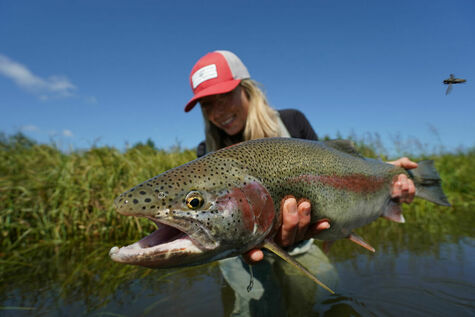
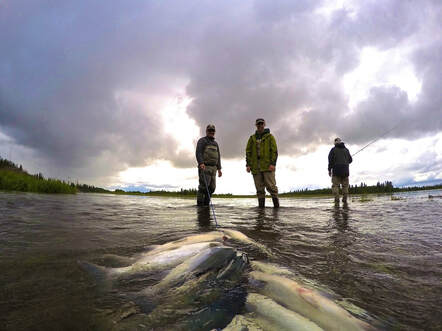
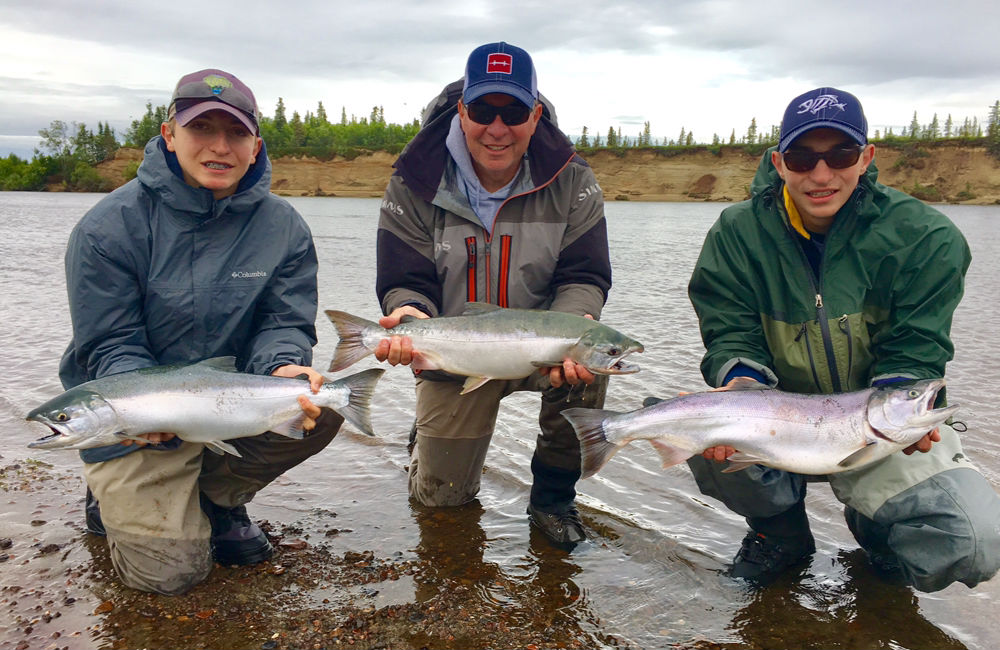
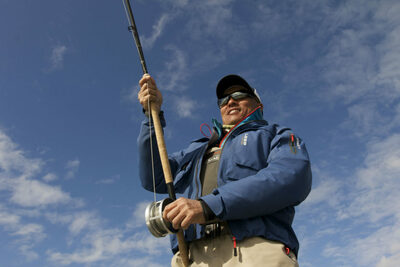
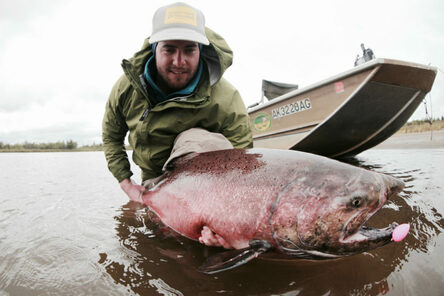
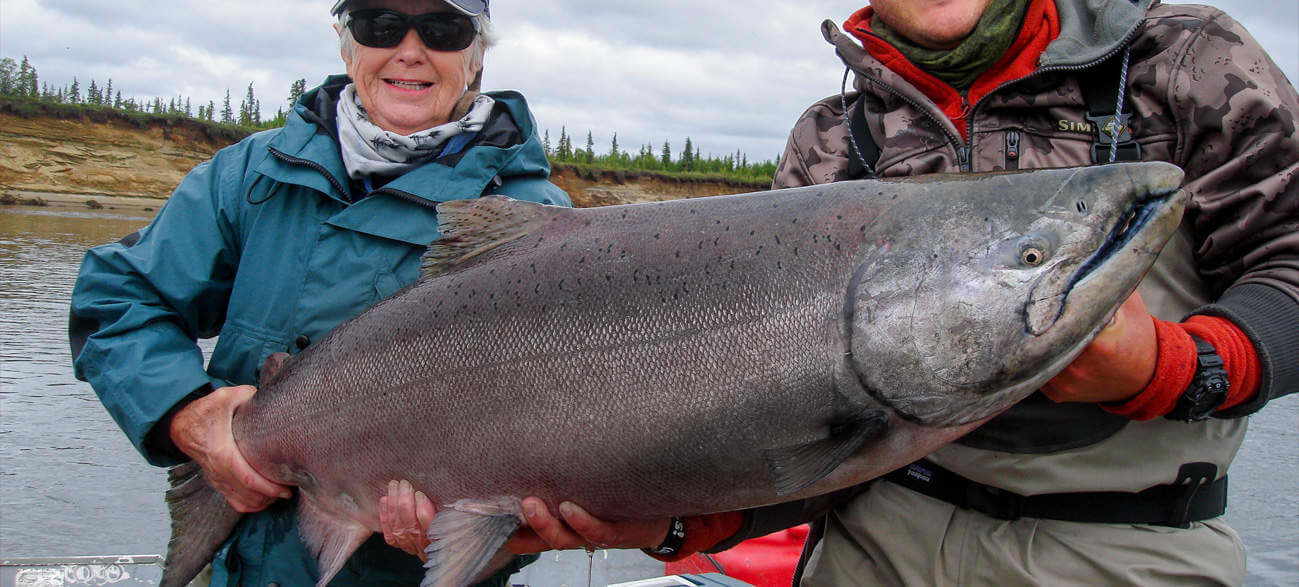
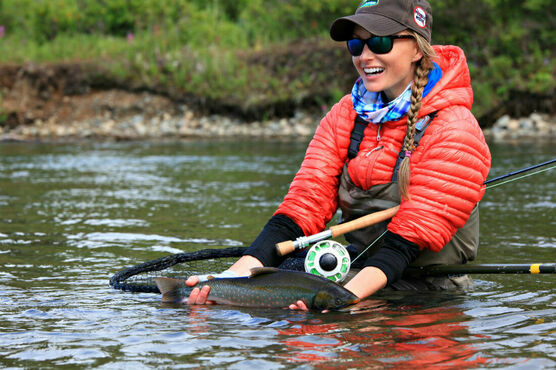
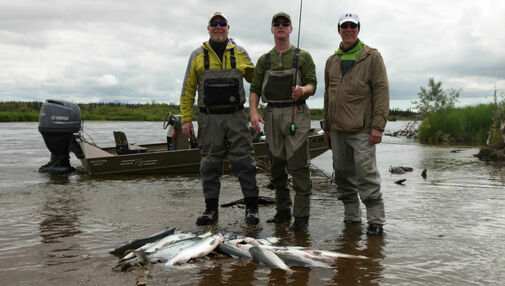
 RSS Feed
RSS Feed
